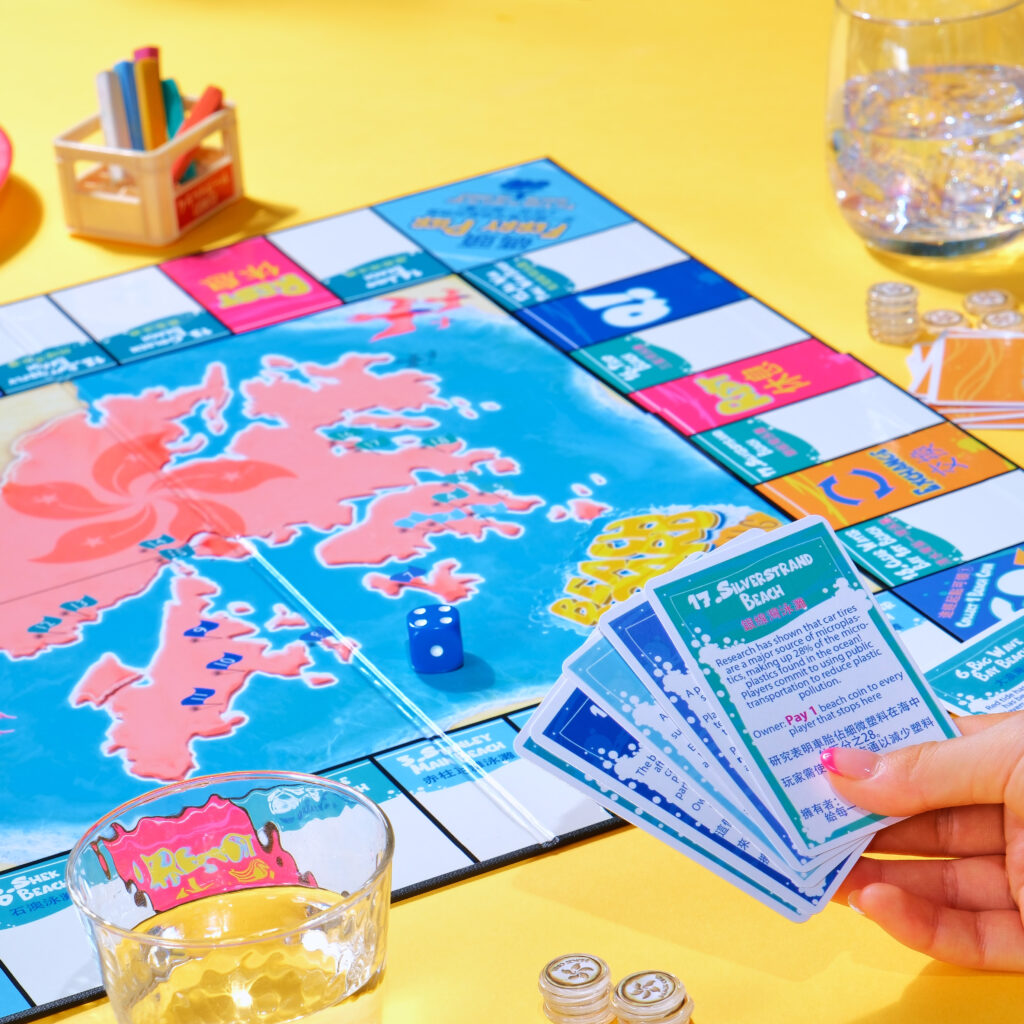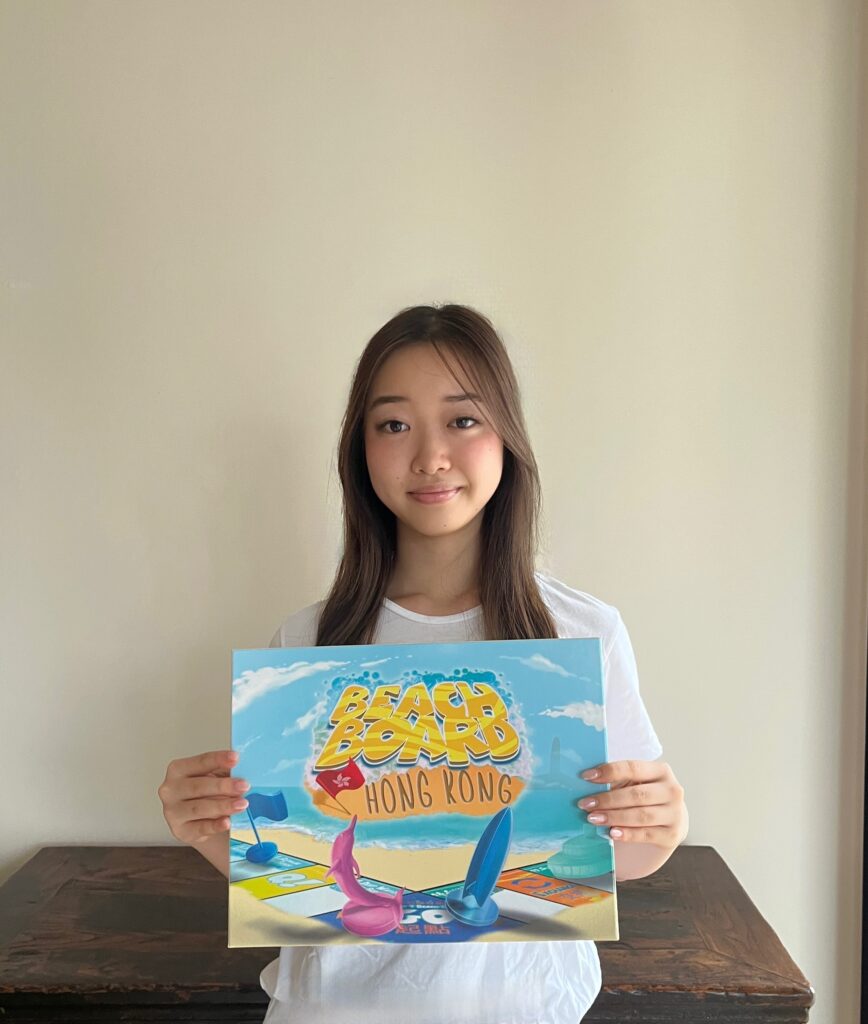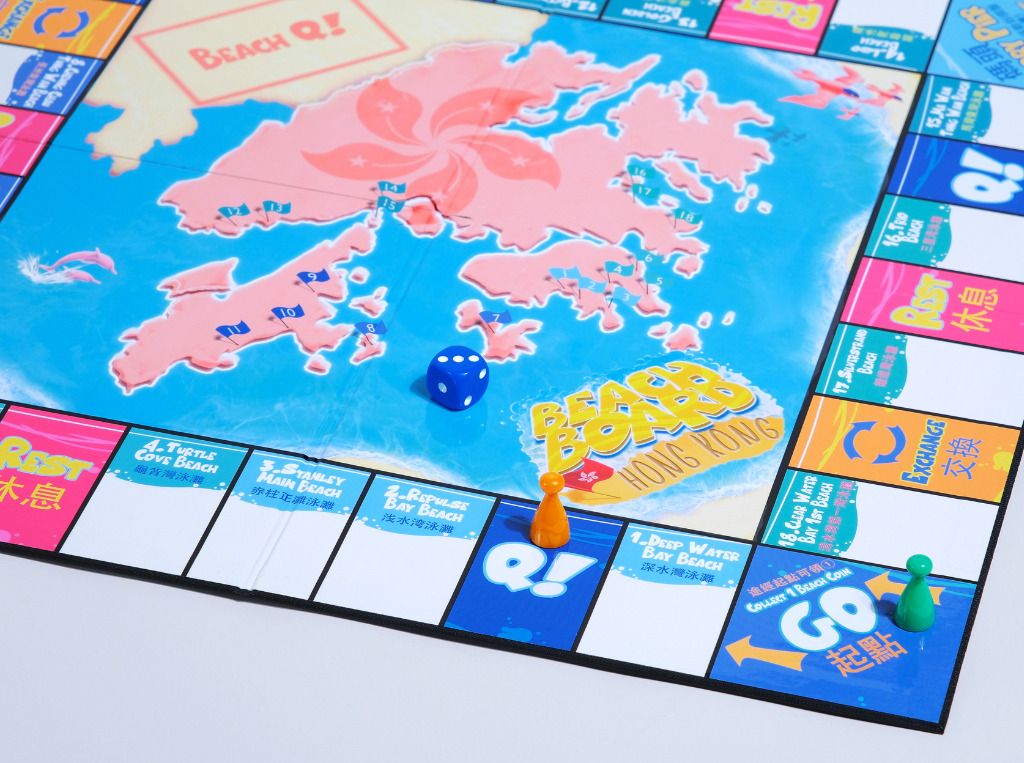Hong Kong High School Student Creates Board Game to Highlight City’s Beach Pollution
5 Mins Read
A high-school student has developed Beach Board Hong Kong, a Monopoly-style game that sheds light on the environmental issues faced by the island’s beaches. Featuring damning pollution facts, action prompts to tackle these challenges, it’s an innovative tool to help educate local schoolchildren about beach pollution, with all proceeds donated to charity.
Last year, Carmel School’s Elsa High School campus organised a beach cleanup involving its students, who were told to pick up trash, albeit with little knowledge about how human actions on beaches impact the environment in these spaces. One of the students, Hinako Nishi, felt it wasn’t enough for children to know that collecting rubbish is a good thing – they need a deeper understanding of the root issue.
This was the springboard for Beach Board Hong Kong, which began as a school project last year and is now a full-fledged board game on sale. Nishi wanted to provide children with an interactive way to learn about how pollution affects beaches, and how their actions can create positive change.
The game features a Monopoly-style board spotlighting 18 Hong Kong beaches, with players who land on each becoming the owners. They receive a property card highlighting specific environmental issues and prompting them to take action. As in Monopoly, where you receive rent when others land on your property, Beach Board Hong Kong has players exchange tokens or move their pawns further or back – whoever gets to 15 tokens wins.
Spotlighting pollution on Hong Kong’s beaches

The beaches include Repulse Bay, Turtle Cove, Lo So Shing, Lower Cheung Sha and Clear Water Bay – to name a few – with highlighted issues reading: “A palm oil spill occurred, having serious health effects on the heat of the fish in the ocean! Players that stop here will volunteer to clean up the leftovers of the dead fish and the palm oil” for Lo So Shing, and “Studies have shown the number of pink dolphins have been decreasing due to water pollution. But, the lucky player shave spotted pink dolphins from this beach” for Lower Cheung Sha.
These cards mirror real problems and events that Hong Kong’s beaches have faced in the past, or are currently undergoing. Positive-impact action prompts include “Find something in your pencil case that may be harmful to the environment” or “Brainstorm a way to reduce plastic pollution during the Dragon Boat Festival”.
Instead of Chance and the Community Chest, Beach Board Hong Kong has Q Cards, where players answer marine-environment-related questions (like “How long does it take for a beach to completely recover after a typhoon“), and Tools spaces where one can obtain elements that have a positive environmental impact, like solar panels.
Nishi, a grade 11 student who funded the game with her personal savings and a loan from her parents, worked with a freelance graphic designer from Brazil. “I gave him a rough idea of how I wanted the design outcome of my board game to be, and he helped me incorporate it into the visual design,” she says.
She play-tested the game with primary schoolchildren, friends and family to receive feedback during development. “As I implemented the feedback I gained from these sessions, I am confident that this game is able to efficiently educate children,” says Nishi. “I plan on creating more opportunities to get my game played by different students inside and outside of my school, throughout this academic year.”
Partnering with marine pollution charity

She hopes to sell the board game, which is currently on sale online, in Hong Kong bookstores in the near future. All proceeds from be donated to marine environmental charities, with the first batch of sales going to local environmental non-profit A Plastic Ocean Foundation, which Nishi has collaborated with on the project.
“A Plastic Ocean Foundation provided me with valuable advice during the development process, including marine information and localisation of content, so as to ensure the game is suitable for my target audience,” she explains. “[It] also will help me this academic year to promote the game to different schools and reach a wider audience with its networks around Hong Kong.”
A portion of the proceeds will go to support A Plastic Ocean Foundation’s #OneTonneLess shoreline cleanup to restore Hong Kong’s coastlines. The organisation will help promote the game to different schools via webinars and in-person workshops. “We hope to reach a wider audience and increase awareness of marine environmental issues in Hong Kong through the game,” says Nishi.
Like other sustainability- and climate-related board games, including Life of Ordinary People and Net Zero Game 2050, Beach Board Hong Kong is an encouraging initiative fighting serious environmental challenges. Hong Kong has long had an air pollution problem, while its packaging habits have also swamped its seas. The city’s beaches play a massive role in ocean pollution too, with microplastic levels 40% higher than the global average, at 5,600 pieces per sq m.
It’s these issues that Nishi wants to raise awareness about, and inspire action from. “By creating conversations and discussions on marine-environment-related topics, the game encourages players to share knowledge, ideas and solutions, and for them to make positive changes in their own daily lives and communities,” she says. “I hope this board game will motivate individuals to become active participants in protecting and preserving our oceans and promoting a sustainable future.”
Beach Board Hong Kong is currently available for sale via its website for HK$ 220.




